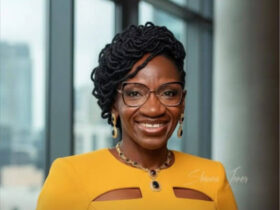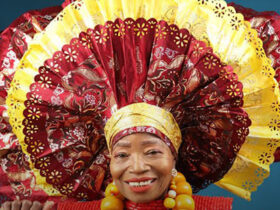Shirley Anita Chisholm, a trailblazer in every sense, was the first black woman to be elected to the United States Congress. She represented New York’s 12th congressional district for seven terms from 1969 to 1983. In 1972, she made history again as the first black candidate for a major-party nomination for President of the United States and the first woman to run for the Democratic Party’s presidential nomination. Read her full story here:
The term “Unbought and Unbossed” tells a story of one woman’s audacity and courage to run for a New York congressional seat in 1968 without the backing of the Democratic Party bosses. It tells the story of one woman’s resilience in fighting for higher wages for working people and more money for public education and depicts her tenacity in demanding respect for black Americans and women. This woman – Shirley Anita Chisholm, was the first woman of African heritage in Congress in 1968 and the first woman and person of African heritage to seek the nomination for president of the United States from one of the two major political parties in 1972.
Shirley was born in Brooklyn, New York, on November 30th, 1924. She was the oldest of four daughters born to Charles St. Hill, a factory worker and Ruby Seale St. Hill, a seamstress originally from Barbados. She graduated from Brooklyn Girls’ High in 1942 and from Brooklyn College in 1946. Her natural flair for self-expression and being vocal and outspoken about salient issues saw her win prizes on the debate team; also, her teachers encouraged her to consider politics as a career path, but she felt that being a woman and a woman of colour would be a double disadvantage in this career path.
Initially, Shirley worked as a school teacher. In 1949, she married Conrad Q. Chisholm; they later divorced in 1977. She then bagged a master’s degree in early childhood education from Columbia University in 1951, and by 1960, she worked as a consultant with the New York City Division of Day Care. She was very aware of racial and gender inequality, and as a result of this, she joined several organizations to sensitize people to the damaging effects of racial and gender-based prejudices.
In 1964, Shirley ran for a seat in the New York State Legislature and became the second African American elected into this legislature. In 1968, she was elected into Congress where she introduced more than 50 pieces of legislation and championed causes on racial and gender equality. She co-founded the National Women’s Political Caucus in 1971 and, in 1977, became the first Black woman and second woman ever to serve on the powerful House Rules Committee. That same year, she married Arthur Hardwick Jr., a New York State legislator.
In 1972, Shirley ran for the 1972 Democratic Party presidential nomination. Discrimination followed her every move; she was banned from participating in televised primary debates, and she was permitted to make just one speech after resorting to legal measures. As a candidate, she won 152 delegates before withdrawing from the race, despite an underfunded campaign and a lack of support from the predominantly male Congressional Black Caucus.
Shirley retired from Congress in 1983. She taught at Mount Holyoke and was a visiting scholar at Spelman College in 1985. In 1993, she was invited by President Bill Clinton to serve as ambassador to Jamaica but declined because of poor health. Speaking on her legacy, she said, “I want to be remembered as a woman … who dared to be a catalyst of change.”











Leave a Reply